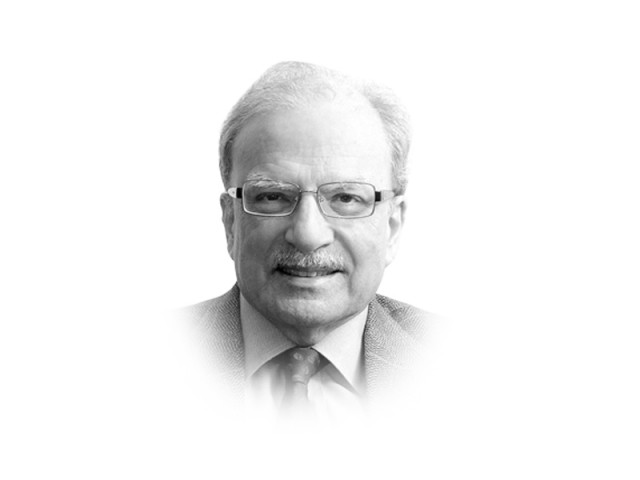Reclaiming lost ground
A new elected administration can improve accountability, restore investor confidence, leading to economic development.

There is, of course, a different approach to development: to mobilise domestic resources for needed investment. But this will need a sense of confidence on the part of those who have the capital to invest in the economy. Economists have long recognised that confidence is by far the most important determinant of economic performance. Those who developed the old growth model had factored it out of their equation. They did not recognise that even if capital and labour are present in abundance, they will only begin to work together if the owners of capital had the confidence that there will be good results produced from their effort. This confidence is absent at this difficult moment in Pakistan’s history. Could this be restored and could the lost ground be reclaimed. The answer is yes, but that would need the adoption of public policies which would provide confidence to the people that those in positions of power will be acting for the larger good of the citizenry, not just for their narrow interests.
The right time to revive confidence will be when a new administration takes office following the next general elections to be held, presumably, sometime early next year. At that time, whoever becomes the prime minister should announce a set of policies aimed at confidence-building. Those who are reflecting on this matter probably have their own lists; my list has two important items.
The first, of course, is improving the quality of governance. Only when that happens that people with capital will begin to invest in the economy rather than sending capital abroad as seems to be happening now. The well-to-do are acquiring foreign assets even when the return from them is much lower than would be the case if domestic corruption had not increased their transaction costs. If it takes a significant proportion of the capital being committed to a particular enterprise just to get the government’s support, there will be a lowering of the rate of return. There are several ways of reducing corruption. One of these is a system of accountability that is effective and efficient and also one in which people have a high level of confidence. Pakistan has tried several systems over the last half-century. They did not work for the simple reason that they were not allowed to be autonomous. They were controlled by the executive branch, the very branch that was to be the subject of accountability. A government that is serious about making elected and public officials accountable must create a system that is beyond the reach of the people and the institutions that are being looked at. This should not be an impossible objective to achieve. The country is working with different approaches to make appointment to offices and functions such as the Chief Election Commission and senior judiciary as free of influence as possible. The same should be possible for those who manage the accountability process.
The regulatory system is another source of corruption and another area that reduces the confidence of the potential entrepreneurs that their investments will provide the needed returns. The current system of regulation was built over time; some of it dates back to the time of the British. The entire structure needs to be carefully reviewed and the provisions that do not serve the citizens’ interest should be removed. One good example is the infamous SRO issued by those who manage external trade to provide relief to a particular industry or enterprise. Giving so much power to one particular part of the bureaucracy almost always invites rent-seeking behaviour.
The new prime minister by announcing just these two measures — an accountability system that is free of influence and the review of the regulatory system with the intention of reforming it — will help to restore the confidence of the currently disheartened likely investors and get them to participate in making the economy work again. Just the fact that the government has an interest in turning the economy around would bring back hope to the community of potential investors.
Published in The Express Tribune, April 24th, 2012.













COMMENTS
Comments are moderated and generally will be posted if they are on-topic and not abusive.
For more information, please see our Comments FAQ